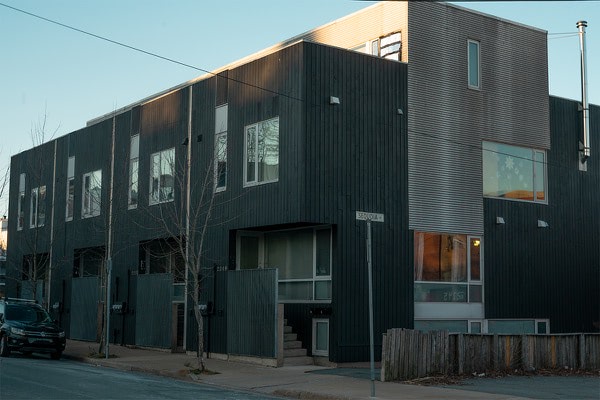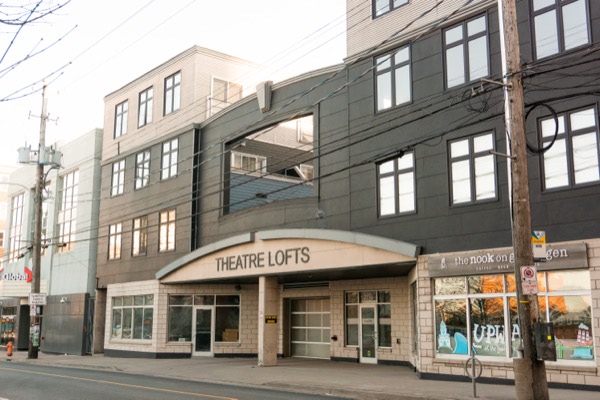You have secured your mortgage approval, but is it what you can truly afford? Here’s what you need to know.

How to know what type of home you can afford
If you’re in the market for a home this year, one of the first things you will need to consider is which type of home you will buy. If you’ve been considering purchasing a home for a while now, you likely have a pretty good idea. However, it will depend on things like your location and preference, but budget will play a huge role as well. You may be wondering what type of home you can afford in this climate, or if you can afford any home at all, so here are some things you should consider before buying in the Halifax area.
Types of homes and what they cost
There are several different types of homes, and each type tends to have its own range of costs. Depending on factors like the size, location, and state of the home, prices can vary. However, here are the main types of homes, and a general overview of their prices.
Detached home
A detached home is often what people think of when they picture a house. These are free-standing properties, meaning they aren’t attached to any other home or unit in the way a duplex or townhome is. These are often the biggest property type, both in the size of the building and the surrounding property. Detached homes are also usually the most expensive. Owners are responsible for handling the expenses for all repairs and maintenance on the property. Plus, the size of these properties often makes them the priciest as well. According to the Canadian Real Estate Association (CREA), the average price of a detached home in the Halifax area is now just over $441,000.
Townhome
A townhome is attached to other homes by at least one shared wall, meaning they are not free-standing. While your individual unit is private, you have less space between yourself and your neighbours as they are part of the same structure. Townhomes are popular in growing urban areas, where big detached homes are too big or don’t fit the area’s demographic. Many people favour townhomes because they strike a balance between detached houses and small apartments.
Condo or apartment
Many people rent apartments, but of course there are options to buy an apartment or condo as well. You probably already know this, but these types of homes are units within a building of other similar units. They vary from townhomes in that you don’t have a yard or an entrance directly from the exterior, but you live within the building. As the smallest type of home, these have the least maintenance, especially because you have no lawn or yard. While these are typically the least expensive, they can still be pricey because their size makes them well-suited for downtown urban cores. According to RE/MAX, the average condo price is nearly $400,000 in Halifax.
Duplex or triplex
Duplexes and triplexes share the same traits as townhomes, with only one big difference. While townhomes tend to be in large rows with multiple units, duplexes and triplexes only come in sets of two or three units together. This means you will have fewer neighbours and shared walls, which can be a benefit.
Costs to consider
Down payment
Your down payment will be the biggest upfront cost of buying any property. Down payments must be between five per cent and 20 per cent of your home’s purchase price, which usually adds up to several thousand dollars. If your property is over the one million dollar mark, you must provide the full 20 per cent. It can take a good amount of time to save for such a large amount. Length of time of course depends on your personal situation, such as your salary, debts and your monthly bills, so make sure you plan ahead.
Monthly mortgage payments / condo fees
Owning a new property means making monthly mortgage payments in order to pay back the lender who financed your mortgage. This will be between 80 and 95 per cent of your home’s price, depending on your down payment. Mortgage payment amounts can vary based on the terms and interest rates of your specific contract, but they will likely be a few thousand dollars each month. If you live in a condo, you may also have to pay condo fees. Your condo fees contribute to maintenance or exterior work such as snow removal, landscaping, and building repairs.
Closing costs
Remember that moving into a new home also has closing costs! Closing costs include things like a property appraisal, mortgage insurance, inspections, moving costs, legal fees, and title transfers. Home inspections in particular can reveal issues that will require extra money to fix, such as pest issues, leaks, or roofing problems. These are things you will have to discuss with the seller to settle who will be responsible for those expenses. You can read more about closing costs here. Closing costs can range from a few hundred to a few thousand dollars.
Renovations and furnishings
Depending on the home, the property you buy may require some renovations. Maybe the house is outdated and needs some modernization, or perhaps you plan on completely gutting the home to make it livable. If this is something you’re planning, these will be even more costs for you to consider. Another possibility is the need to buy new furniture when you move into your home. If you’re relocating from an apartment, or buying your first home since leaving your parents’ house, you might not have any furniture of your own! Items such as couches, bedding, and tables will all add extra costs to buying a home.
Utilities
Finally, you will need utilities to turn your house into a functioning home. Things like gas, hydro, internet, and cable all come with costs, and many of them are essential. Depending on your property type, you may have some choice in your provider for some of these features. However, in condos, for example, the building often has a standard internet provider.
It’s not always easy to know what type of home you can afford. That’s why it helps to enlist the guidance of a mortgage broker! Brokers are unbiased professionals, dedicated to reviewing your situation and giving you the facts about your purchasing power. They can assist you with your budget, which lender to go with, and ultimately will secure the right product for you. Buying a home in 2022 might be overwhelming, but mortgage brokers make the experience much less stressful on your end.
If you have questions about buying a home, get in touch with us at Clinton Wilkins Mortgage Team! You can call us at (902) 482-2770 or contact us here.


